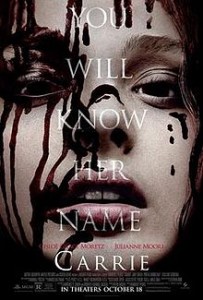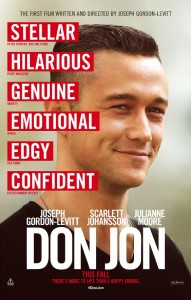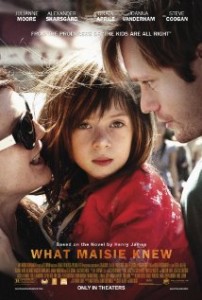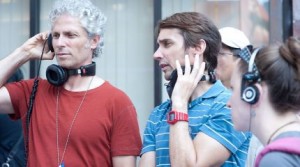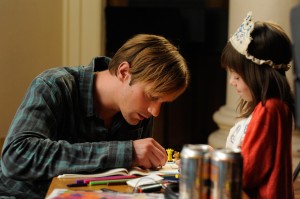Non-Stop
Posted on February 27, 2014 at 6:00 pm
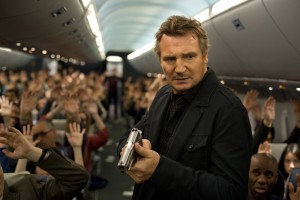 I’ve got nothing against action movies that are dumb fun (see last week’s review of 3 Days to Kill). My bar is pretty low. I don’t ask them to make sense. But “Non-Stop” sinks to a level of ridiculousness that harshes the buzz from even a top-notch cast and engaging set-up. I never thought I’d say this, but if Liam Neeson wants to appear in an yearly middle-aged action movie to combat the doldrums of winter, maybe he should consider “Taken 3.” Or “Snakes on a Plane 2.”
I’ve got nothing against action movies that are dumb fun (see last week’s review of 3 Days to Kill). My bar is pretty low. I don’t ask them to make sense. But “Non-Stop” sinks to a level of ridiculousness that harshes the buzz from even a top-notch cast and engaging set-up. I never thought I’d say this, but if Liam Neeson wants to appear in an yearly middle-aged action movie to combat the doldrums of winter, maybe he should consider “Taken 3.” Or “Snakes on a Plane 2.”
Neeson plays Bill Marks, an ex-cop-turned air marshall with issues. We meet him in the airport parking lot, taking a drink, arguing with his boss, and looking seedy and shaky. Outside the airport taking a last smoke, he is distracted, not hearing a request for a light, and inside the airport he is curt with other travelers. Once on board the plane to London, he admits to his seatmate, Jen (Julianne Moore), that he is very tense during take-off, but fine once the plane is in the air. Once they air airborne, he goes into the lavatory and puts duct tape on the smoke detector so he can have another cigarette.
Back in his seat, he receives a text on the secure federal network. It says that if $150 million is not transferred to a bank account, every twenty minutes someone on the plane will die. The sender seems to know all about him. Bill has to figure out if the threat is real and who it is coming from.
Thankfully, the movie avoids the obvious “if you don’t know why that well-known actor is in this movie, he’s the bad guy” syndrome. There’s a lot of bench strength in the “that guy looks familiar” non-star supporting cast, with outstanding character performers and up-and-coming actors like Scoot McNairy (“12 Years a Slave,” “Argo”), Corey Stoll (“Midnight in Paris,” “House of Cards”), Nate Parker (“Arbitrage”), Michelle Dockery (“Downton Abbey”), Luptia Nyong’o (“12 Years a Slave”), Linus Roache (“Law and Order: SVU”), and Omar Metwally (“Harry’s Law”). Every one of them takes the unforgiving material of the storyline further than it could possibly be expected to go, most of them giving us reasons to doubt/believe/doubt/believe whatever they are saying so nicely that they almost make it possible for us to ignore the increasingly dumber twists of what I will loosely refer to as the plot. They make the shifting alliances hold our interest even as the storyline veers out of control. The twists and turns of the who-dun-it and what-did-he-or-she-do-and-how are not as dumb as the decision to have Marks, for example, stop in the middle of a dire, every-second-counts moment to tell everyone on the plan a sad story about why he is so tortured. And then there’s the moment when the cabin loses air pressure just in time to float a gun into Marks’ hand.
An airplane movie should take advantage of its locked-room setting and inherent danger. But this one seems to miss the point. Constricted space and the limits on getting dangerous materials through the TSA checkpoint should make the fight scenes more interesting, but they are unimaginatively staged by director Jaume Collet-Serra. Marks’ instability is another limitation should also add an additional layer of uncertainty, but it is handled so inconsistently that it breaks the tension. Finally, so much is piled into the last fifteen minutes that it feels like an unsuccessful attempt to get us to forget how little sense it makes. We don’t ask for much from movies like this but the minimum is that you should get all the way to the car before you start saying, “Wait a minute….” This one depends on such a pile-up of preposterousness that even these actors can’t land it safely.
Parents should know that this movie’s themes concern terrorism and hijacking, fights, guns, bomb, intense peril. Some characters are injured and killed, and the movie includes a sexual situation, brief strong language including gay slur, drugs, and alcohol abuse.
Family discussion: What was the villain’s real motive? If you suspected the wrong person, how did the movie mislead you?
If you like this, try: “Air Force One” and “Red Eye”

